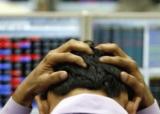 New Delhi, Nov 21: India is the tenth most vacation deprived nation in the world as the average Indian fails to relish their leisure time and continues to stay connected to work during vacations, according to a new survey.
New Delhi, Nov 21: India is the tenth most vacation deprived nation in the world as the average Indian fails to relish their leisure time and continues to stay connected to work during vacations, according to a new survey.
Such holiday habits have pushed India to the world's tenth most "vacation-deprived" nation down from last year's fourth position, found the survey by online travel service provider Expedia.
Results of the 2013 Vacation Deprivation study has been derived from an annual analysis of vacation and holiday habits across multiple countries and continents.
The survey finds while on an average, Indians utilise 20 out of 26 leaves granted, they still lag behind in relishing the leisure time - whether booking hotels for a relaxing getaway or just staying at home - with 94 per cent at least sometimes check on mails even during on vacation.
"In India, people still lag behind when it comes to completely letting go during their vacation. Not just this, even during regular days, Indians work for more hours than other countries with 38 per cent people working for 41-50 hours a week. This shows the need for a better work-life balance," says Vikram Malhi, General Manager, South and Southeast Asia Expedia India.
While India tops the percentage of people checking mail on vacations it is followed by those in France (93 per cent), Thailand (92 per cent), Malaysia (91 per cent) and Mexico (91 per cent).
37 per cent Indians surveyed said they preferred getting money in exchange of unused holidays, which is the highest number in the world, followed closely by Brazil (30 per cent).Within the country too, people in Delhi topped the trend with 44 per cent of employees not redeeming their holidays and preferring to get money in exchange. Delhi is followed by Mumbai (24 per cent) and Bangalore (36 per cent).
With respect to saving vacations for future use Indians ranked third highest 46 per cent, in the world with Malaysia and Singapore leading with 56 per cent and 53 per cent respectively.
Overwork is another reason for people not going on vacations. The survey found that India is second highest in having maximum number of over worked people with people working for an average of 42 hours a week.
Hong Kong tops the list with people working an average of44 hours a week.
However, despite being the country with one of the most overworked people, 85 per cent people say they are satisfied with their job.
The study is an annual analysis of vacation habits across 24 countries and was conducted online by Harris Interactive among 8,535 employed adults between August and September 2013 on behalf of Expedia.





Comments
Add new comment